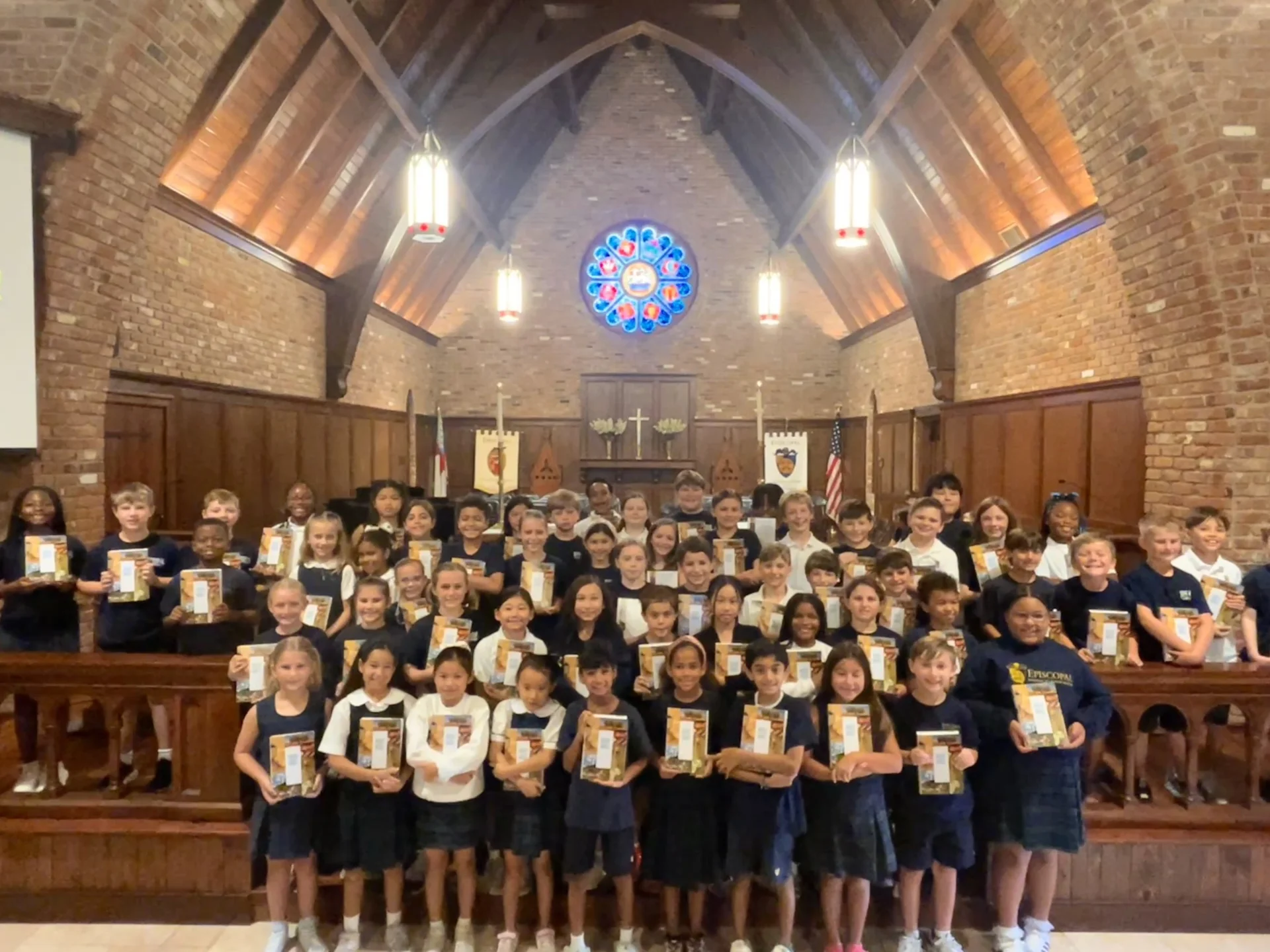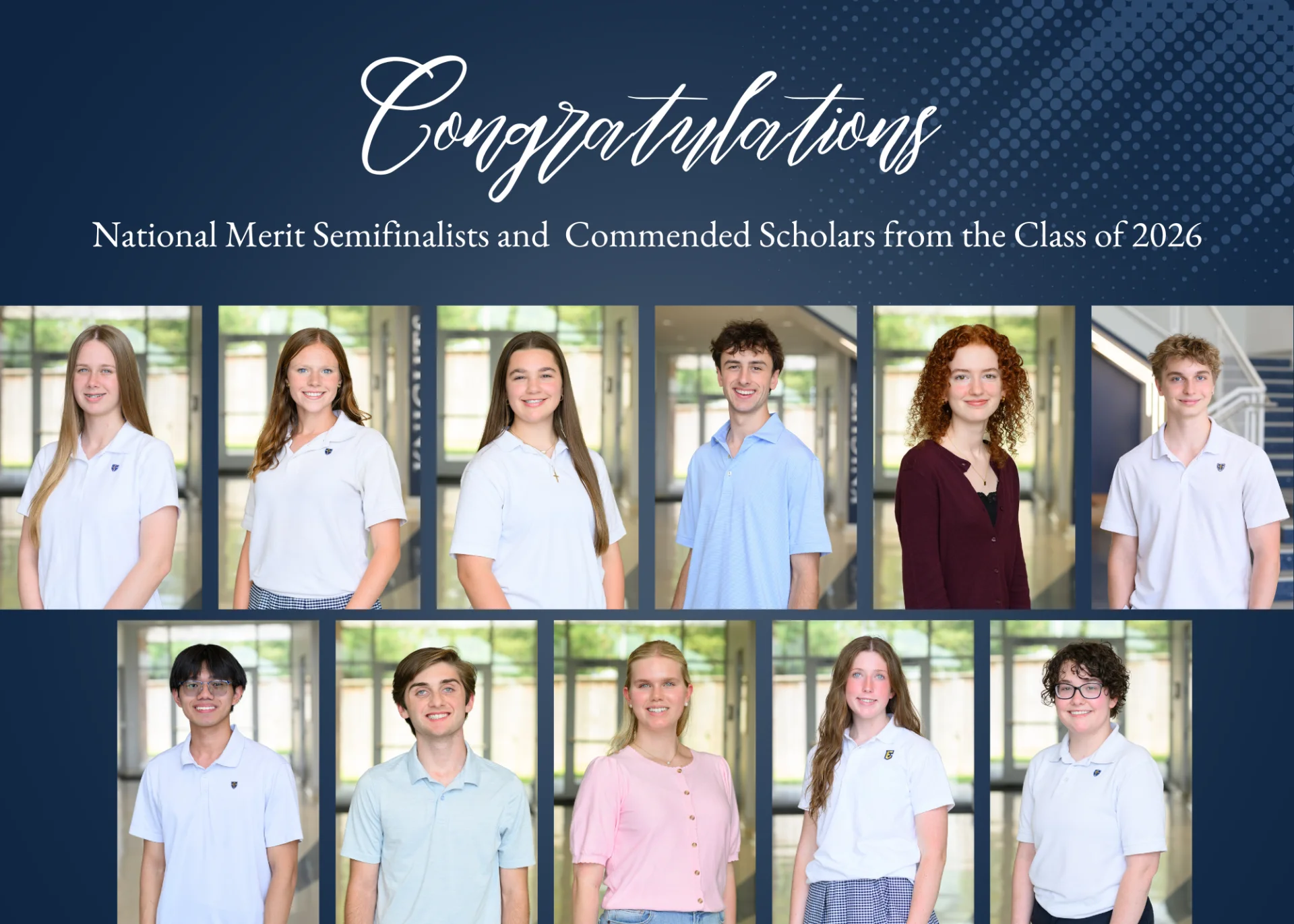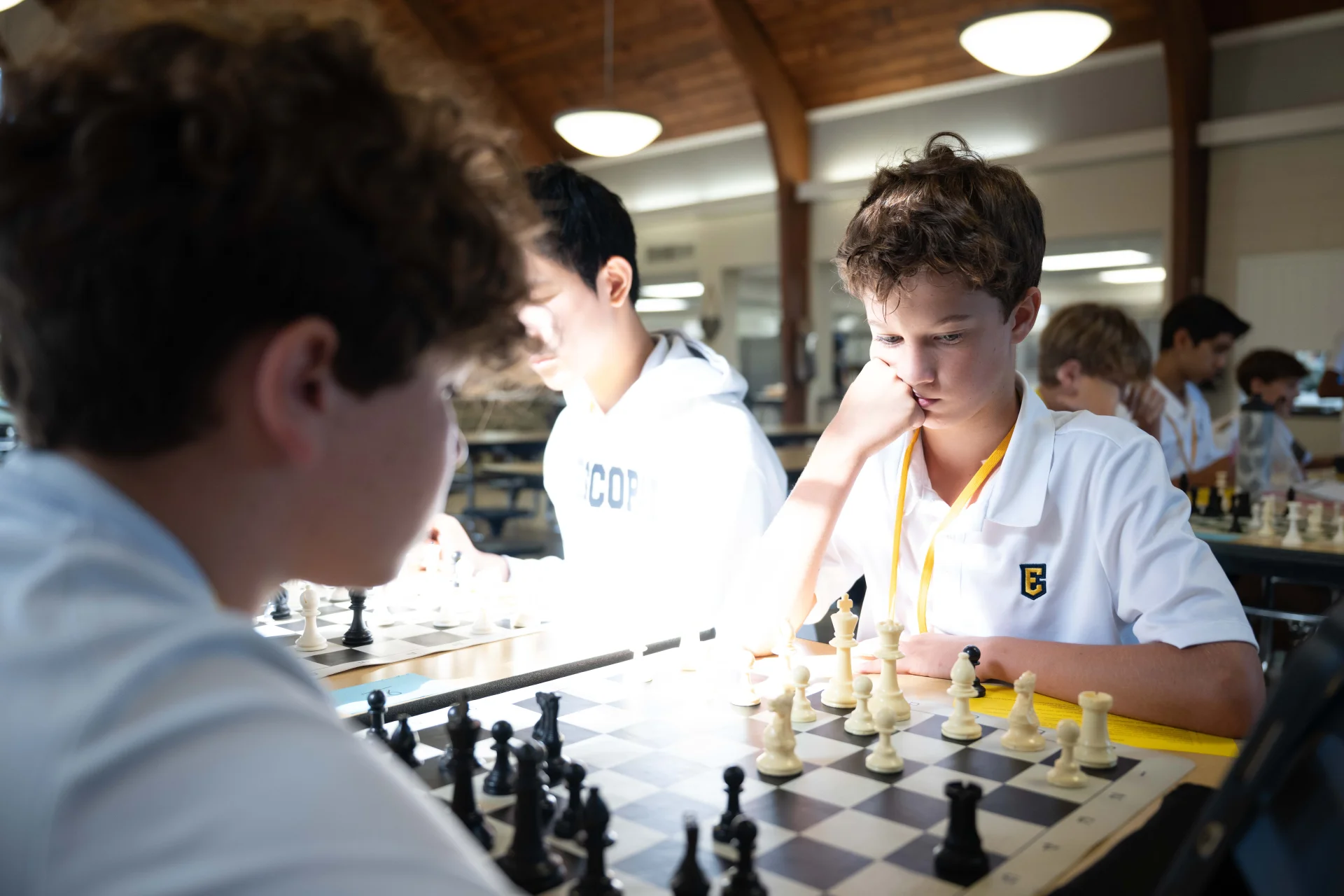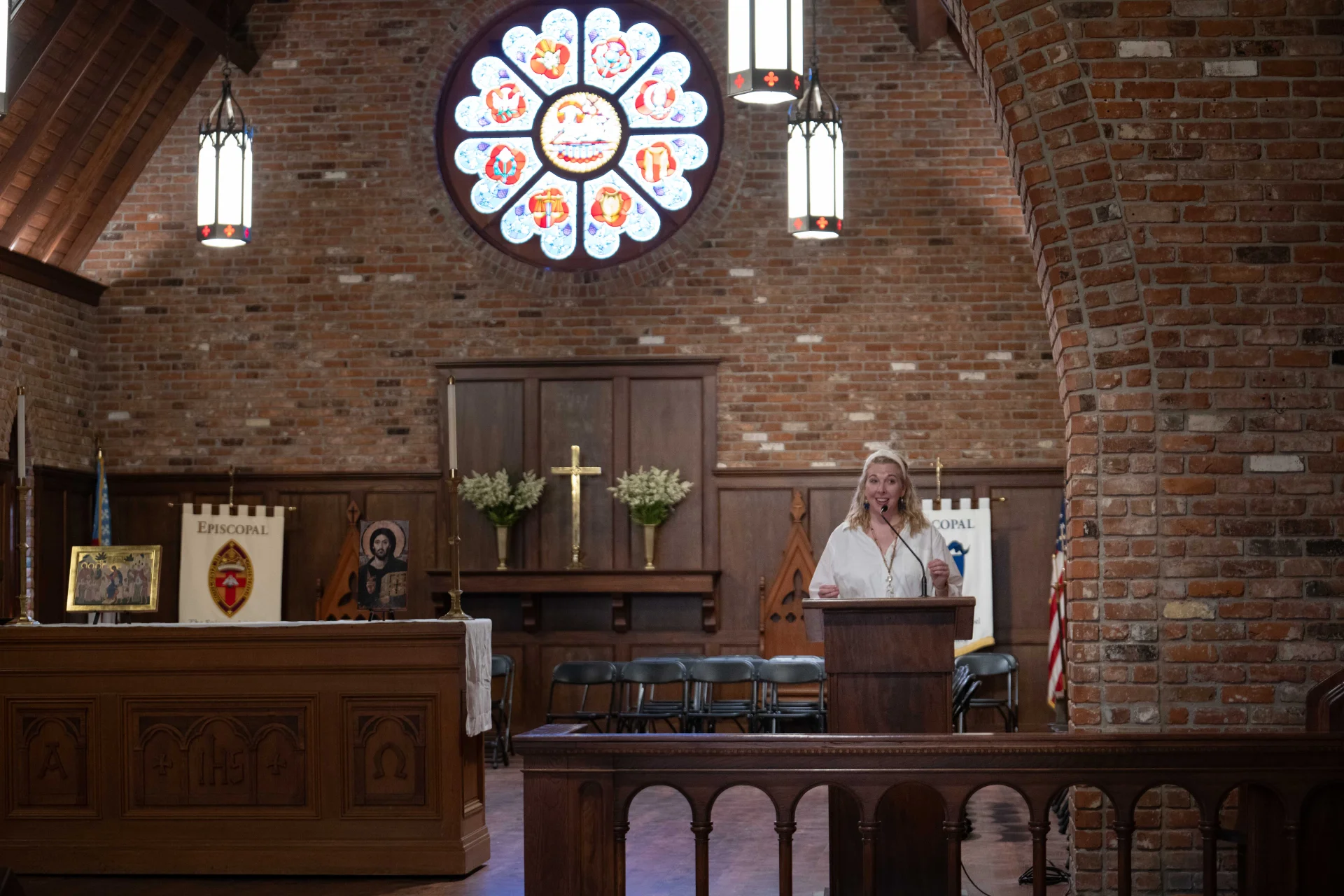- Admission
- Discover Episcopal
- Our Program
- Athletics
- Arts
- Spirituality
- Student Life
- Support Episcopal
- Alumni
- Parent Support
- Knightly News
- Contact Us
- Calendar
- School Store
- Lunch Menu
« Back
Episcopal Celebrates Student Successes in ESTAAR
June 4th, 2019

ESTAAR (Episcopal Students Take Action in Advanced Research) is a Science, Technology, Engineering, and Mathematics (STEM) independent research program geared toward a select group of students with the drive to perform high-level research in a STEM field. In addition to required coursework, students in this two year program develop their own research projects under the mentorship of professors at local research institutes (for more information, see this previous blog about ESTAAR).
Three seniors successfully completed this rigorous program this year, earning each of them a Distinction award (see this previous blog to learn more about the Episcopal Distinctions program). In addition to the awards given, Episcopal would like to recognize their work and dedication, as well as their supervising professors, who supported these students in their scientific journey:
|
 Emily Frazer
Emily Frazer
Effect of Temperature on Development and Fertility of Nipponaclerda Biwakonesis Scale on Phragmites Cane
Emily worked under the mentorship of Dr. Ian Knight in Dr. Rodrigo Diaz’s lab in LSU’s Department of Entomology. Emily’s work focused on the effects of temperature on the development and fertility of a scale insect that infests the Roseau cane, a plant that plays a crucial role in preserving wetlands. The health of this cane plant varies around the delta, and this scale insect may be one of the stressors affecting cane health. Dr. Diaz and other LSU AgCenter researchers were recently awarded a $1 million grant to continue studying the threats to Roseau cane health including rising water and the Roseau cane scale insect*. Emily presented her work at both Junior Science and Humanities Symposium and on LAUNCH day here at Episcopal.
 Abby Johnson
Abby Johnson
Sonication-Assisted Self-Assembly of Polystyrene Nanosphere Monolayers
Abby Johnson worked in collaboration with an LSU student under the mentorship of Dr. Kevin McPeak in LSU’s Department of Chemical Engineering. Abby’s work aimed to improve the quality of polystyrene nanosphere monolayers, used in nanosphere lithography to make nanopatterns for electronics. Previous work had looked at the use of sound waves in sonication to improve the quality of these monolayers with larger spheres, in the 1 micron diameter range. Abby explored the use of sonication to improve the quality of monolayers formed with spheres in the nanometer diameter range. These smaller spheres allow for further miniaturization of electronics used in applications such as solar panels and biosensors. Abby presented her work at both Junior Science and Humanities Symposium and on LAUNCH day here at Episcopal.
Seven new ESTAAR students have been accepted into the program for the 2019-2020 school year. We would like to thank Dr. Diaz, Dr. McPeak, and Dr. Pojman, along with all the other research professors who have participated and are participating in the ESTAAR program.
*“LSU AgCenter Gets $1M for Research on Wetlands Roseau Cane.” AP NEWS, Associated Press, 10 Mar. 2019, www.apnews.com/1396d1021e3d4e2ba4d0e647bd2773a2.
Dr. Sara Fenske
Dr. Sara Fenske pursued a career in education because of her love of science and desire to share that passion with others. Knowing the impact a great education can have, Sara chose to focus on teaching and curriculum design, with a focus on continuous improvement. Dr. Fenske joined Episcopal as a member of the science faculty and the Academic Programs Special Projects Manager. In 2018 she transitioned into the role of Dean of Academics. In this new position, Dr. Fenske works collaboratively with the Head of School, division heads, department chairs and faculty members to ensure Episcopal’s continued strong and relevant academic performance. Prior to joining Episcopal, she was the Science Department Chair and taught at Linden Hall in Pennsylvania. She has a Bachelor of Science in cell and molecular biology from the University of Michigan, Ann Arbor, and a PhD in biology from the Massachusetts Institute of Technology in Cambridge, Massachusetts.
The Episcopal School of Baton Rouge 2025-2026 application is now available! For more information on the application process, to schedule a tour, or learn more about the private school, contact us at [email protected] or 225-755-2685.
Other articles to consider
 Sep11A Tradition of Faith and Community: The Fourth Grade Bible Blessing
Sep11A Tradition of Faith and Community: The Fourth Grade Bible BlessingLower School celebrated a milestone as fourth grade students received new Bibles.
See Details Sep11Introducing the Class of 2026 National Merit Semifinalists and Commended Scholars!
Sep11Introducing the Class of 2026 National Merit Semifinalists and Commended Scholars!Introducing the Class of 2026 National Merit Semifinalists and Commended Scholars!
See Details Sep5Building Community through Chess
Sep5Building Community through ChessMembers of the Middle School Chess Club describe it as a fun opportunity to become a better chess player. Read more about this club that has recently experienced tremendous growth.
See Details Sep4Finding Joy and Community in New Experiences
Sep4Finding Joy and Community in New ExperiencesCarrie Poynot challenges others not to fear failure and to find joy in trying new things. Read her recent Upper School Chapel message.
See Details
Categories
- All
- Admission
- Athletics
- College Bound 2019
- College Bound 2020
- College Bound 2021
- College Bound 2022
- College Bound 2023
- College Bound 2024
- College Bound 2025
- Counselors Corner
- Episcopal Alumni
- Giving
- Head Of School
- Lower School
- Middle School
- Spirituality And Service
- Student Work
- The Teachers' Lounge
- Upper School
- Visual And Performing Arts






 Clay Burton
Clay Burton




